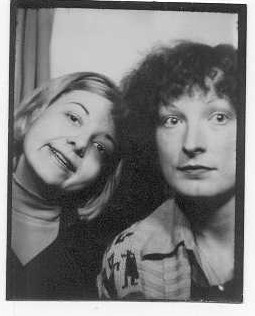Maybe a year ago I saw Supreme Court Justice Antonin
Scalia profiled on 60 Minutes. Leslie
Stahl was questioning him on
Originalism and I thought the whole concept was curious but I was more curious about other aspects of his being.
Recently I saw a repeat of the segment and I found myself thinking a lot about the concept which seems, on some levels, to be peculiar (this is my most benign response) and fairly surreal on others.
I came across this info on the topic on
Legal Theory Lexicon "All the concepts that fit."
If you already have an
opinion, please share it. If not, please read...digest...respond. In other words, discuss.
Introduction: There are many different theories of constitutional interpretation, but the most controversial and also perhaps the most influential is "
originalism"--actually a loosely-knit family of constitutional theories. The idea that courts would look to evidence from the constitutional convention, the ratification debates, The Federalist Papers, and the historical practice shortly after ratification of the Constitution of 1789 (or to equivalent sources for amendments) is an old one. This post provides a very brief introduction to "
originalism" that is aimed at law students (especially first-year law students) with an interest in legal theory.
Originalism is not just an ivory tower theory. It has had a profound influence on the practice of constitutional interpretation and the political contest over the shape of the federal judiciary. President Reagan's nomination of Robert Bork (an avowed
originalist) was one key moment--with his defeat by the democrats seen as a political rejection of
originalism. The current Supreme Court has at least two members who seem strongly influenced by
originalist constitutional theory--Associate Justices Antonin
Scalia and Clarence Thomas and two others, John Roberts and Samuel
Alito who may also be receptive to
originalist arguments. In the late 1980s Justice Antonin
Scalia suggested that
originalists should shift their attention from "the original intentions of the framers" to the "original public meaning of the constitutional text."
The New
Originalism The final chapter of the
originalism debate in legal theory has yet to be written--and perhaps it never will be. But one last set of developments is particularly important. In the 70s and early 80s,
originalism was strongly associated with conservative judicial politics and conservative legal scholars. But in the late 1980s and in the 1990s, this began to change. One of the important moves was the shift from "original intentions" to "original public meaning," but two developments were key. First, Bruce
Ackerman's work on constitutional history suggested the availability of "left
originalism" that maintained the commitment to the constitutional will of "We the People" but argued that the constitution included a New Deal constitutional moment that legitimated the legacy of the Warren Court. (
Ackerman does not call himself an "
originalist," but many of
Ackerman's former students do work that is implicitly or explicitly
originalist.) Second, Randy Barnett (the leading figure in libertarian legal theory) embraced
originalism in an influential article entitled An
Originalism for
Nonoriginalists. The most recent development in this dynamic is Jack
Balkin's attempt to reconcile
originalism with living constitutionalism.
The original-meaning version of
originalism emphasizes the meaning that the Constitution (or its amendments) would have had to the relevant audience at the time of its adoptions. How would the Constitution of 1789 have been understood by an ordinary adult citizen at the time it was adopted? Of course, the same sources that are relevant to original intent are relevant to original meaning. So, for example, the debates at the Constitutional Convention in Philadelphia may shed light on the question how the Constitution produced by the Convention would have been understood by those who did not participate in the secret deliberations of the drafters. But for original-meaning
originalists, other sources become of paramount importance. The ratification debates and Federalist Papers can be supplemented by evidence of ordinary usage and by the constructions placed on the Constitution by the political branches and the states in the early years after its adoption. The turn to original meaning made
originalism a stronger theory and vitiated many of the powerful objections that had been made against original-intentions
originalism.
This sets the stage for what is sometimes called “the New
Originalism” and also is called “Original Meaning
Originalism.” Whatever the actual origins of this theory, the conventional story identifies Antonin
Scalia as having a key role. As early as 1986,
Scalia gave a speech exhorting
originalists to “change the label from the Doctrine of Original Intent to the Doctrine of Original Meaning.” The phrase “original public meaning” seems to have entered into the contemporary theoretical debates in the work of Gary Lawson with Steven
Calabresi as another “early adopter.” The core idea of the revised theory is that the original meaning of the constitution is the original public meaning of the constitutional text.
We are already beginning to see
originalists coming to grips with the relationship between original meaning and precedent--both in the narrow sense of Supreme Court decisions and the broader sense of the settled practices of the political branches of government and the states. Some
originalists have argued that as a general rule, constitutional actors should give follow original meaning, even if it would conflict with longstanding historical practice or settled precedent. Other
originalists argue that precedent and/or historical practice can trump original meaning in specified circumstances.








